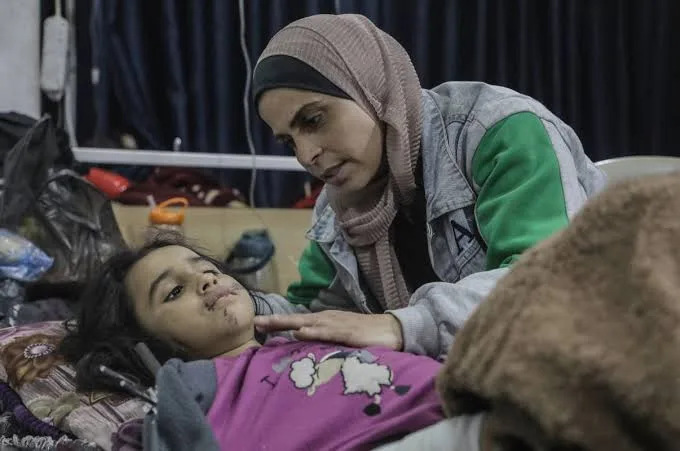GAZA STRIP / WASHINGTON D.C. – July 25, 2025 –
Hopes for a ceasefire in the Gaza Strip have dimmed significantly as the United States announced its withdrawal from ongoing negotiations, squarely blaming Hamas for the lack of progress.
This development comes amidst escalating reports of mass starvation facing Palestinians in Gaza, with UNICEF confirming the tragic deaths of four children from malnutrition in the last 48 hours alone.

President Donald Trump’s special envoy, Steve Witkoff, stated on Thursday, July 24th, that the U.S. was cutting short the Gaza ceasefire talks in Qatar and recalling its negotiating team for consultations. Witkoff accused Hamas of “lacking good faith” and showing a “lack of desire to reach a ceasefire in Gaza.” He further added that mediators had made significant efforts, but Hamas “does not appear to be coordinated or acting in good faith.” The U.S. will now explore “alternative options” to secure the release of hostages and stabilize the humanitarian situation.

Israel also recalled its negotiating team, with Prime Minister Benjamin Netanyahu’s office echoing the sentiment that Hamas’s latest response did not allow for progress. While both the U.S. and Israel expressed a continued desire for a ceasefire, they placed the onus on Hamas for the stalemate.
The talks have been mired in competing demands, with Hamas insisting on a full Israeli withdrawal and an end to the conflict in exchange for the release of all hostages. Israel, conversely, maintains it will not agree to end the war until Hamas relinquishes power and disarms – a condition the militant group rejects. A main sticking point, officials stated, has been the redeployment of Israeli troops after any potential ceasefire.
The collapse of these crucial talks casts a darker shadow over an already dire humanitarian situation in Gaza. International aid organizations have repeatedly warned of widespread “mass starvation” gripping the enclave. Over 100 humanitarian and human rights groups issued a joint statement this week, highlighting that even their own staff are struggling to secure enough food.
Further underscoring the severity of the crisis, UNICEF Regional Director for the Middle East and North Africa, Edouard Beigbeder, issued a poignant statement on July 24th, confirming that “children in the Gaza Strip are starving to death.” He revealed a staggering 54% increase in reported child deaths due to malnutrition since April, with the total now reaching 80, according to the Palestinian Ministry of Health. In the past 48 hours alone, at least four more children reportedly succumbed to starvation.
Beigbeder emphasized that these deaths are “unconscionable and could have been prevented.” He called for unfettered aid access to children in need, warning that without it, acute malnutrition will continue to rise. UNICEF reported that 6,500 children were admitted for malnutrition treatment in June, the highest levels since the conflict began, with July already tracking higher.
As diplomatic efforts falter, the immediate priority for many remains securing immediate and sustained humanitarian access to prevent further loss of life in Gaza, particularly among the most vulnerable.
